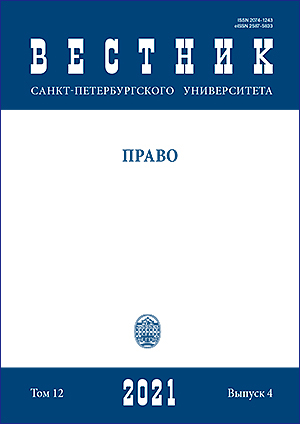Legal norms vs. doctors and patients’ perceptions of the content and meaning of the informed consent to medical intervеntion
DOI:
https://doi.org/10.21638/spbu14.2021.403Abstract
Informed consent to medical intervention represents the principle of individual autonomy, recognized in Russian law and medical practice nearly 30 years ago, but it is still viewed as controversial and even rejected. The purpose of informed consent is to provide obligatory prior notification about the consequences and risks of a medical procedure to be performed, as well as other possible options of treatment. Based on the results of anthropological and legal studies, the article focuses on issues concerning obtaining informed consent and its interpretations, comparing the meanings attributed to the document by lawyers, government agencies, courts, as well as doctors and patients. The legal nature of the consent consists in expressing a person’s will for medical intervention and his decision which cannot be made by anyone else. The meaning that patients and doctors attribute to informed consent, as shown by results of a survey and interviews, is shifting risks and responsibility for negative consequences from the medical organization to the patient. Stylistic features of the document influence its perception by ordinary citizens, resulting in fear and doubts about the doctor’s qualifications. Russian courts usually follow a formal approach when judging whether the signature reflects the patient’s real expressed will. Failure to understand the meaning of the document being signed, a circumstance that is sometimes cited when justifying an error in a transaction, is usually not recognized as sufficient. Although the document is formulated on behalf of the patient, he receives a ready-made text, containing information of a professional nature. This causes difficulties in the patient’s understanding of the document that has been drawn up on his behalf. However, when a person argues that he signed an informed consent without understanding its content, courts often do not consider his words sufficient, thus failing to stimulate medical organizations to provide a document that is catered to ordinary people’s medical and linguistic competences.
Keywords:
informed consent, medical intervention, court practice, interviews, doctors and patients, language of legal documents, understandability of legal language, difficulties in understanding documents
Downloads
References
Downloads
Published
How to Cite
Issue
Section
License
Articles of "Vestnik of Saint Petersburg University. Law" are open access distributed under the terms of the License Agreement with Saint Petersburg State University, which permits to the authors unrestricted distribution and self-archiving free of charge.






